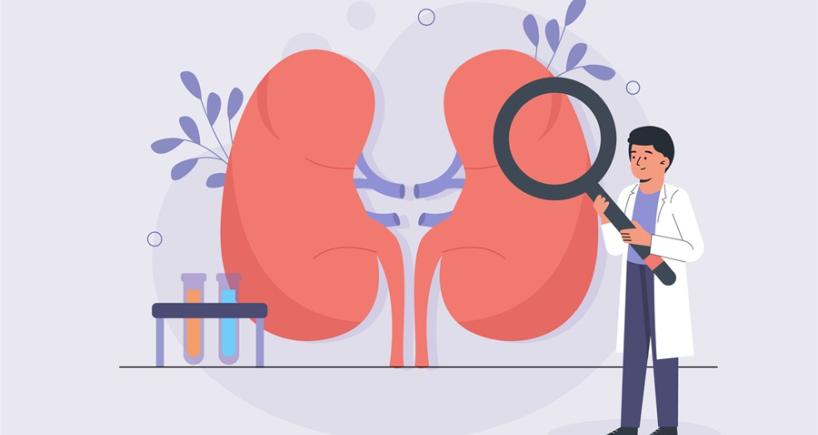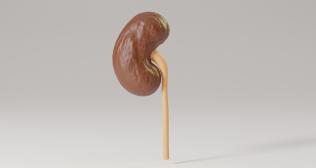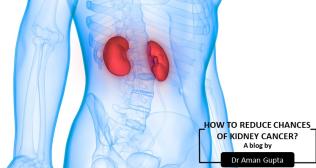
Kidney Transplant: Diagnosis and Treatment of Kidney Diseases
Introduction
The kidneys play a major role in filtering unwanted products from the blood and excreting them via urine. If the kidneys lose this capacity, waste products can accumulate, which is potentially life-threatening. This loss of kidney/renal function is referred to as an end-stage kidney disease.
Diagnosis of Kidney Diseases
- Blood Test: Estimates the levels of a waste product known as creatinine in the blood
- Urine Test: Checks the levels of albumin and creatinine in the urine
Other diagnostic tests may comprise:
- Ultrasound Scan, MRI Scan, and CT Scan: Examine what the kidneys look like and assess whether there are any blockages
- Kidney Biopsy: It involves excising a small kidney tissue sample and microscopically examining the cells for any signs of damage
Treatment of Kidney Disease
There’s no remedy for chronic kidney disease (CKD), but treatment can aid relieve the symptoms and stop it from getting worse. Treatment will rely on the stage of CKD. The primary treatments include:
- Lifestyle Changes: To remain healthy for as long as possible
- Medicine: To control the associated problems, like high blood pressure and high cholesterol
- Dialysis: To replicate a few of the kidney’s roles, which may be required in advanced CKD.
Kidney failure is the predominant reason for requiring a kidney transplant. A kidney transplant refers to transferring a healthy kidney from one individual into the body of an individual with little or no kidney function.
Tests Before Kidney Transplant
- Blood Tests: To check:
- general health,
- blood group, and
- tissue type.
- Antibody Tests: To detect antibodies in blood that might make it difficult to receive a transplant.
- Comorbidities: Healthcare professionals will need to know how healthy the heart and lungs are and whether the patient has any cancers or severe infections.
Kidney Transplant Procedure
- Obtaining a kidney from a living donor will be a carefully planned operation.
- If a patient is waiting for a deceased donor’s kidney, the transplant center will connect with them when a suitable kidney becomes available. Staff at the center will check that the patient has no new medical problems and will ask the patient to go to the center, where final checks will be performed.
- Patients will then undergo the surgery, wherein the new kidney is inserted and connected to the blood vessels and bladder. The new kidney will be positioned in the lower abdomen (tummy). Patients’ original kidneys will generally be left in place.
- It is a major surgery with a broad range of potential risks. The short-term risks comprise blood clots and infection. Longer-term problems comprise diabetes and an elevated risk of infections and are typically related to the medication patients are required to take to decrease the chance of the body rejecting the kidney.
- Because of the risk of further issues, individuals who have had a kidney transplant require routine check-ups for the remaining years of their life.
Living With a Kidney Transplant
Having a physically fit lifestyle after a kidney transplant goes a long way to reduce the chances of complications. Therefore, it’s suggested that you:
- Cease smoking
- Consume a well-planned, nutritious diet
- Shed some pounds
- Take steps to lessen the chances of developing infections
Innovation in the Space of Kidney Transplant
- Rather than waiting in a years-long queue, could an individual in need of a dire kidney transplant obtain it from a farm pig instead? Backed by gene-editing tools, such as CRISPR-Cas9, researchers have renewed their efforts to make this a reality.
- In a spearheading medical achievement, surgeons recently performed the first pig-to-human kidney transplant. A 62-year-old man with an end-stage kidney disease obtained a new kidney from a genetically modified pig.
In case of any health problems post-kidney transplant, seek immediate medical attention.
Popular Searches :
Hospitals: Cancer Hospital in Delhi | Best Heart Hospital in Delhi | Hospital in Amritsar | Hospital in Ludhiana | Hospitals in Mohali | Hospital in Faridabad | Hospitals in Gurgaon | Best Hospital in Jaipur | Hospitals in Greater Noida | Hospitals in Noida | Best Kidney Hospital in Kolkata | Best Hospital in Kolkata | Hospitals in Rajajinagar Bangalore | Hospitals in Richmond Road Bangalore | Hospitals in Nagarbhavi Bangalore | Hospital in Kalyan West | Hospitals in Mulund | Best Hospital in India | | Cardiology Hospital in India | Best Cancer Hospital in India | Best Cardiology Hospital in India | Best Oncology Hospital In India | Best Cancer Hospital in Delhi | Best Liver Transplant Hospital in India
Doctors: Dr. Rana Patir | Dr. Rajesh Benny | Dr. Rahul Bhargava | Dr. Jayant Arora | Dr. Anoop Misra | Dr. Manu Tiwari | Dr. Praveer Agarwal | Dr. Arup Ratan Dutta | Dr. Meenakshi Ahuja | Dr. Anoop Jhurani | Dr. Shivaji Basu | Dr. Subhash Jangid | Dr. Atul Mathur | Dr. Gurinder Bedi | Dr. Monika Wadhawan | Dr. Debasis Datta | Dr. Shrinivas Narayan | Dr. Praveen Gupta | Dr. Nitin Jha | Dr. Raghu Nagaraj | Dr. Ashok Seth | Dr. Sandeep Vaishya | Dr. Atul Mishra | Dr. Z S Meharwal | Dr. Ajay Bhalla | Dr. Atul Kumar Mittal | Dr. Arvind Kumar Khurana | Dr. Narayan Hulse | Dr. Samir Parikh | Dr. Amit Javed | Dr. Narayan Banerjee | Dr. Bimlesh Dhar Pandey | Dr. Arghya Chattopadhyay | Dr. G.R. Vijay Kumar | Dr Ashok Gupta | Dr. Gourdas Choudhuri | Dr. Sushrut Singh | Dr. N.C. Krishnamani | Dr. Atampreet Singh | Dr. Vivek Jawali | Dr. Sanjeev Gulati | Dr. Amite Pankaj Aggarwal | Dr. Ajay Kaul | Dr. Sunita Varma | Dr. Manoj Kumar Goel | Dr. R Muralidharan | Dr. Sushmita Roychowdhury | Dr. T.S. MAHANT | Dr. UDIPTA RAY | Dr. Aparna Jaswal | Dr. Ravul Jindal | Dr. Savyasachi Saxena | Dr. Ajay Kumar Kriplani | Dr. Nitesh Rohatgi | Dr. Anupam Jindal |
Specialities: Heart Lung Transplant | Orthopedic | Cardiology Interventional | Obstetrics & Gynaecology | Onco Radiation | Neurosurgery | Interventional Cardiology | Gastroenterologist in Jaipur | Neuro Physician | Gynecologist in Kolkata | Best Neurologist in India | Liver Transfer |



















